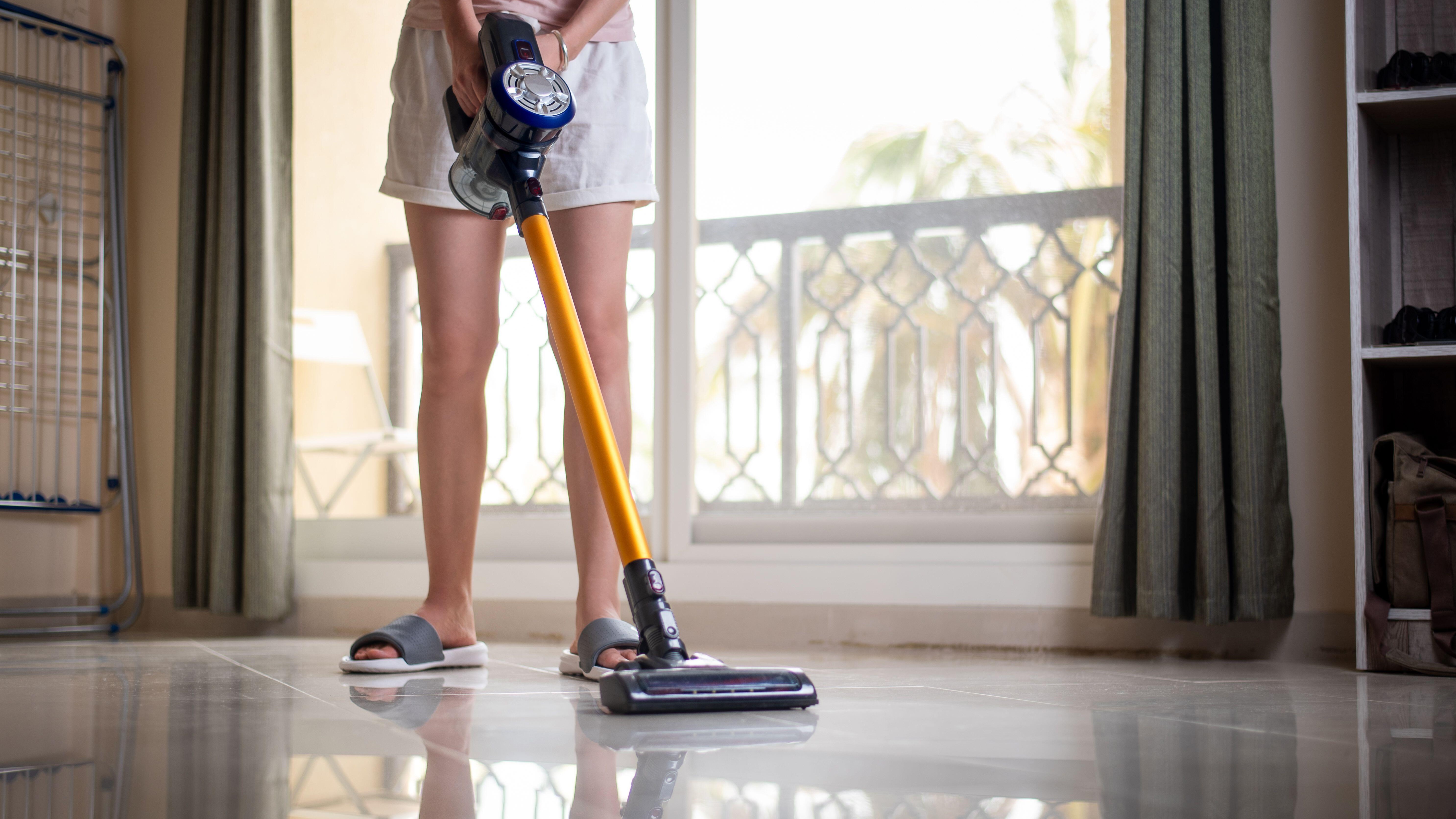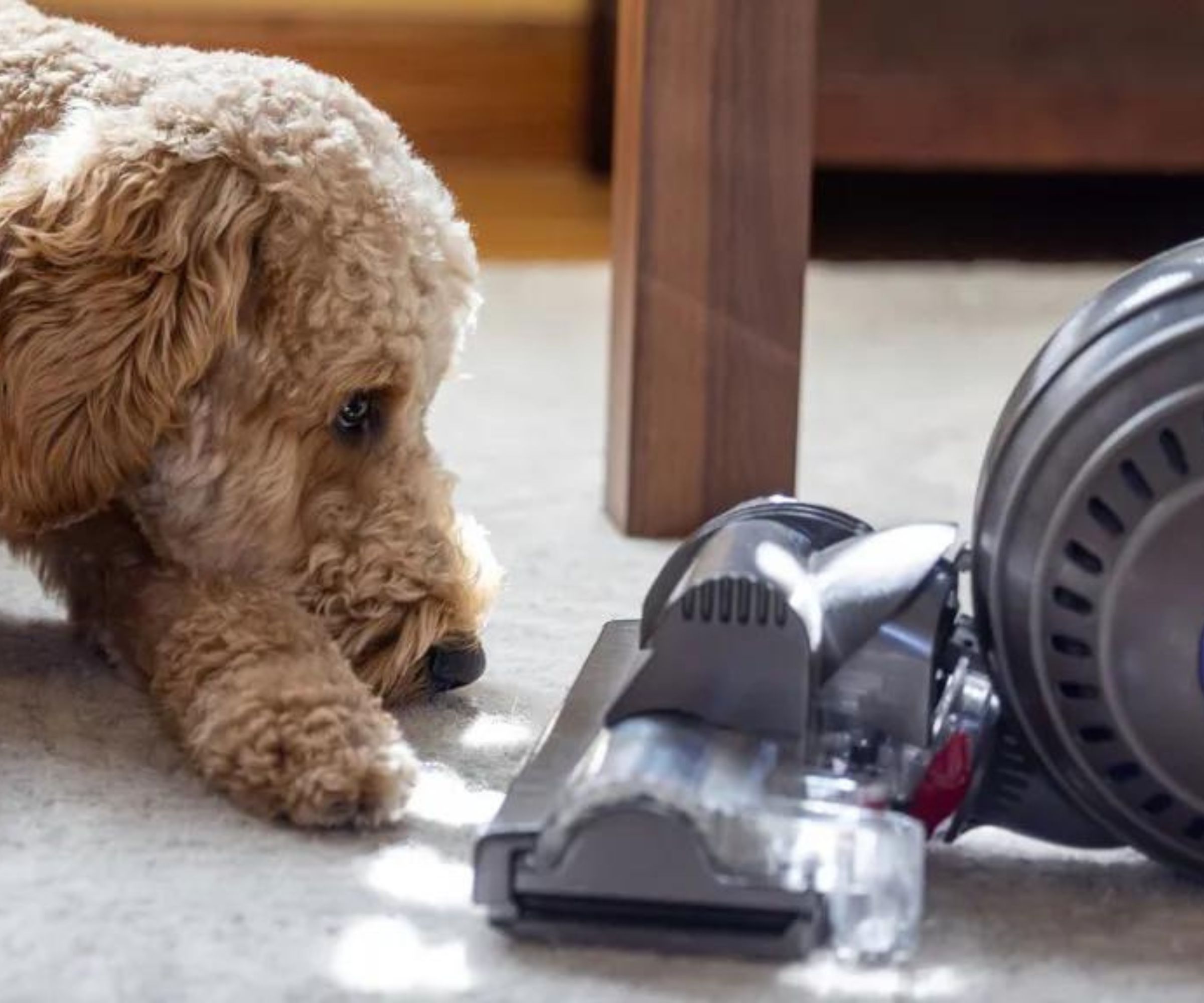
It makes sense that vacuum cleaners smell foul sometimes as they're responsible for so much of our home cleaning, But that doesn't make it any less unwanted, especially when it's not clear where the smell's coming from.
Even the best vacuum cleaners give off an odor sometimes. But fortunately for us, it isn't too difficult to resolve the problem.
The steps below will cover all the different reasons why your vacuum cleaner might be smelling, with advice on what to do in each situation. And remember, to prevent it from happening in the future, it's smart to keep your vacuum in its best condition possible.
6 reasons why your vacuum cleaner might be smelling
We spoke to our trusted cleaning experts to find out why vacuum cleaners can sometimes give off a nasty smell – and what you can do about it.
Vacuum's dustbin, bag or canister needs emptying
This one might sound obvious, but you'd be surprised by how often people over-fill their vacuum cleaners. Many of the messes we clean have a natural odor, and keeping them all within our vacuum for days or weeks at a time will inevitably release them back into our homes.
'Accumulated dirt, dust, and debris can start to smell if not emptied regularly,' affirms Andy Shu, founder and technical director of Zapfixers. Regular emptying also helps to keep the vacuum's dustbin or canister cleaner for longer.
Carolina Kazimierski, co-owner and president of Sophia’s Cleaning Service, adds to this: 'I typically notice vacuums begin to smell when they require a bag change. Even if you haven't been vacuuming up anything particularly smelly, for some reason a full bag will begin to cause a foul odor.' If yours is a bagged vacuum cleaner, the smell might be a sign to replace the bag.
Your vacuum needs cleaning
If you've emptied your vacuum cleaner and it still smells, chances are it needs a clean. The dustbin, canister, or vacuum bag aren't the only places where mess can accumulate.
'One of the most common reasons is the lack of regular cleaning and maintenance. Over time, dirt, dust, and debris can build up in your vacuum filters and other components, leading to unpleasant odors,' explains Logan Taylor, professional cleaner and founder of Dazzle Company.
Regularly cleaning your vacuum cleaner is important, not only for the lifespan of your appliance but to prevent these smells from developing. Vacuums typically aren't that tricky to take apart (especially modern cordless vacuums), and once you can access each part you can give it a thorough clean.
This is particularly true if there's anything organic hiding in your vacuum, as Andy explains: 'Food particles or organic matter stuck in the hose or brush roll can rot and produce unpleasant odors.'
Filters are clogged, dirty or overused
When cleaning or taking apart your vacuum cleaner, make sure to take a close look at the filters.
'Modern vacuums tend to have several different filters, and they will eventually get plugged up and a little smelly. There’s the bag itself (unless it’s bagless), then usually another 1-2 filters between the bag/collection area and the motor (usually foam), and then another 1-2 filters AFTER the motor (exhaust filters)' explains David Buckler, president and GM of MaidPro Calgary.

'The vacuum filter prevents any particles and debris you have vacuumed up from being released back into your home as you vacuum. So, they can tend to accumulate a lot of gunk, which can start to smell over time,' Carolina adds. 'You may need to look up your particular model of vacuum to learn how to access and remove the filter, but giving this a good clean is usually my second recommendation.'
Knowing how to clean your vacuum filter (and whether it actually needs replacing, not cleaning) is key here, and you should make sure to do this at least a few times a year, more so if you have pets.
On top of the accumulated, odor-inducing gunk that rests on the filters, the impact they have on the vacuum's efficiency can cause other problems. As David puts it: 'Clogged filters cause the vacuum motor to work harder, and burn out faster.' They do this by restricting airflow and potentially causing over heating, but more on that below.
Moisture buildup
'Trapped moisture can create a breeding ground for mold and mildew, adding another layer of stink,' says Rocky Vuong, founder & owner of Calibre Cleaning. To prevent this, you should always avoid vacuuming damp materials. Unless yours is a wet-dry vacuum, it likely won't be able to handle the moisture.
'If your vacuum has picked up something damp, mold or mildew can develop inside, causing a bad smell. If you suspect mold, clean the affected parts with a solution of water and vinegar or a mild disinfectant. Let them dry completely before reassembling,' adds Andy.
Pet hair & dander

Our precious pets have natural odors, and these don't go away once their hair and dander are vacuumed up. As Andy puts it: 'Pet hair and dander can start to smell over time, especially if it's mixed with dirt and moisture.'
According to David, 'the second biggest odor issue is typically pets, and while we love them dearly, they also come with their own fragrance. If they’ve left you a “whoops” that you unintentionally vacuumed up, you will want to disassemble the brush area and clean both the brush and housing.'
'You’ll also just get a “wet dog” odor that builds up over time, particularly if you have large long-hair breeds. Thoroughly cleaning the vacuum as above will help, but you can also try adding an odor-eliminator to your vacuum as well.'
Electrical issues
'If you have tried all of the above and still have a smell, you may be nearing the end of your vacuum life,' says David. 'Electric motors will wear out, and you’ll start to smell a sharp burnt electrical odor as the motor itself nears the end of its life.'
A burning smell doesn't necessarily mean your vacuum is on its way out, but it most likely will cost you. 'A burnt smell can indicate a problem with the belt or motor, possibly due to overheating or friction,' explains Andy. Whether it's from a clogged filter (as mentioned above) or from extended use, inspect these parts and replace what's necessary - depending on the price.
'Typically a vacuum motor costs $100+ for just the parts, so unless it’s under warranty still or a really expensive vac system, you’re generally better off to replace the whole thing,' says David.
'When preventing these smells, maintain a regular cleaning schedule for your vacuum, use scented vacuum bags, or add a vacuum deodorizer to keep it smelling fresh and ensure the area you're vacuuming is dry' says Lina DaSilva, founder of Toronto Shine Cleaning.
If your vacuum cleaner's looking worse for wear, it might be time to consider an upgrade to one of the best vacuums for pet hair or the best Dyson alternatives.







